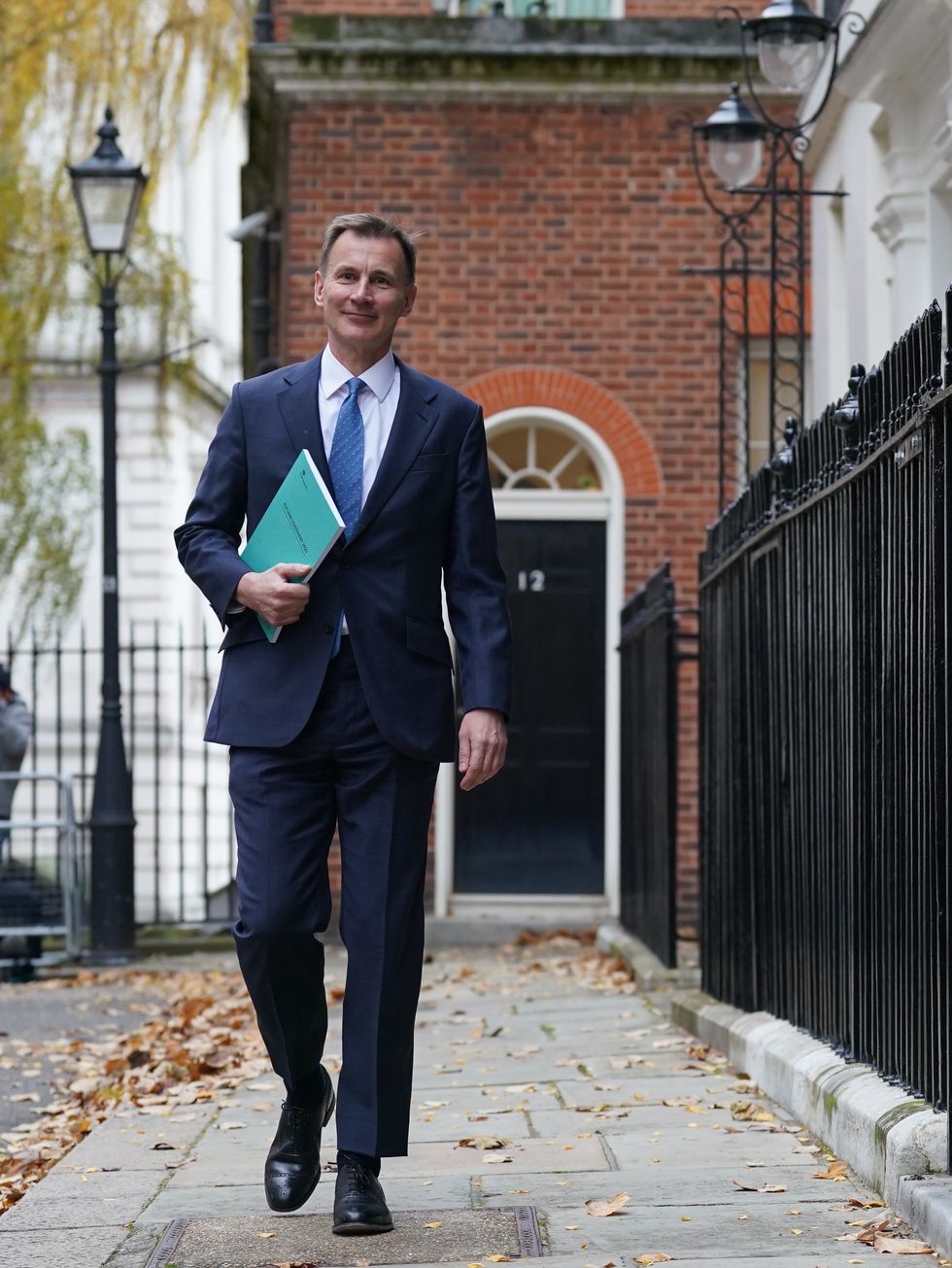State pension increase confirmed and pensioners could get £900 extra next year – full list of rates

The state pension will increase by 8.5 per cent, in line with the earnings element of the triple lock, in April 2024
|GETTY

Chancellor Jeremy Hunt confirmed the triple lock would be honoured in full, meaning the state pension will increase by 8.5 per cent from April 2024
Don't Miss
Most Read
Pensioners will get a state pension increase of up to around £900 a year from April next year after Chancellor Jeremy Hunt confirmed an 8.5 per cent rise in the Autumn Statement.
However, not all pensioners will get this much of a boost, as there are two types of state pension and entitlement depends on a person’s National Insurance record.
Speaking in the House of Commons on Wednesday, Mr Hunt said: “Today we honour our commitment to the triple lock in full.
“From April 2024, we will increase the full new state pension by 8.5 per cent to £221.20 a week, worth up to £900 more a year.
WATCH NOW: Jeremy Hunt confirms he will honour triple lock
“That is one of the largest ever cash increases to the state pension – showing this government will always back our pensioners.”
While the 8.5 per cent rise, which follows a 10.1 per cent increase in April 2023, will be welcome news for pensioners, Mr Hunt and Prime Minister Rishi Sunak’s six-year freeze to the personal allowance means more pensioners are set to have to pay tax on their income in retirement.
GB News has been contacted by several pensioners who have had to start paying tax due to their income rising, such as through the state pension increase, but the personal allowance remains fixed at £12,570 – something it will be held at until 2028.
Sian Steele, head of tax at professional services and wealth management firm Evelyn Partners, said: “From a tax point of view, this increase for the state pension takes it a step closer to the frozen annual personal income tax allowance, which means that a retiree will not need a great deal of private income in retirement – whether that is from a personal pension, investments or property – before they pay tax at the basic rate of 20 per cent.
“The new flat rate annual state pension of £11,501 in the 2024/25 tax year, is just £1,069 short of the £12,570 tax-exempt allowance as it stands in 2023/24.”
Claire Trott, St. James’s Place, warned: "Those who have saved for their retirement and have other income, or are in fact still working, won’t see the whole benefit of this increase due to the frozen personal allowances and tax bands."
How much is state pension increasing by?
The state pension will rise by 8.5 per cent, in line with the earnings element of the triple lock.
The increase will come into effect from April 6, 2024.
State pension rates for 2024/25
The full new state pension will increase by £17.35 a week.
It means the full new state pension weekly amount from 2024/25 will be £221.20 – up from £203.85.
The full basic state pension will increase by £13.30 per week.
From 2024/25, the full basic state pension weekly amount will be £169.50. The 2023/24 rate is £156.20 per week.
The Pension Credit standard minimum guarantee for single people will increase by £17.10 to £218.15 per week. It’s currently £201.05.
The Pension Credit standard minimum guarantee for a couple, currently £306.85 a week, will increase by £26.10 to £332.95 a week.
LATEST DEVELOPMENTS:

Chancellor Jeremy Hunt confirmed the state pension triple lock would be honoured in full in his Autumn Statement
|PA
Helen Morrissey, head of retirement analysis at Hargreaves Lansdown: said the announcement would be greeted with "relief" by pensioners who have been struggling to get by amid the rising cost of living.
She added: "With inflation starting to fall back the 8.5 per cent increase will start to put some much-needed space in people’s budgets.
"This huge increase is down to red hot wage data stoked by one-off bonuses made to NHS and civil service workers during the summer.
"The concern was that a government concerned about the ongoing cost of state pension would look to mitigate the impact by going for a lower figure. Options included using wage data that stripped out the effect of these bonuses or using the inflation figure."
Ms Morrissey pointed out there is "precedent" for the government tweaking the triple lock, as it was temporarily suspended for a year during the Covid pandemic.
She said: "When the furlough scheme elevated wage data during the pandemic they chose to break the triple lock in favour of using the lower inflation figure.
"However, with an election on the horizon it is understandable why government may have decided against this, but debate will rage over whether the triple lock remains the best way to uprate the state pension long-term.”







